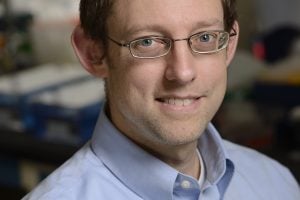Joel S. Bader, a professor of biomedical engineering, is a leading innovator in genomics and biotechnology. His research explores the connection between genotype and phenotype, relating an organism’s genetic material to its observable characteristics.
Bader develops new computational methods to define how inborn genetic variants and acquired mutations lead to disease, primarily complex genetic disorders and cancer, with the goal of identifying new therapeutic targets. He also leads synthetic biology projects that design and build entire chromosomes and genomes to create new forms of life. He also leads an effort to create cells that rely on RNA (ribonucleic acid) rather than DNA for their genetic information. In related efforts, Bader’s lab develops technologies for biosafety and biosecurity, preventing the escape of engineered life and identifying evidence of genetic engineering in DNA samples.
Bader serves as interim director of the Whiting School of Engineering’s Institute for Computational Medicine, the Johns Hopkins Malone Center for Engineering in Healthcare, and of the High-Throughput Biology Center (HiT Center) at the Johns Hopkins University School of Medicine. He leads the Johns Hopkins Cancer Target Discovery and Development (CTD2) Center, which was funded by the National Cancer Institute to identify new targets for metastatic breast cancer by revealing the molecular drivers of tumor metastasis, the main cause of breast cancer mortality.
Bader, who holds a secondary appointment in the Department of Computer Science, is a member of the Johns Hopkins School of Medicine’s Institute of Genetic Medicine. He is a founder of Neochromosome, Inc., a company using synthetic biology to develop new products for biomedicine and agriculture. Prior to joining the JHU faculty in 2003, Bader worked in biotech at CuraGen Corporation as director of bioinformatics. At CuraGen Corporation, he co-invented the 454 Genome Sequencer, the first next-generation DNA sequencer to reach the market.
Bader received a National Science Foundation (NSF) CAREER Award. He is a Fellow of the American Institute for Medical and Biological Engineering (AIMBE) and Deputy Editor of PLOS Computational Biology. He regularly serves on federal government advisory committees for the National Institutes of Health, the NSF, and the Department of Energy.
Bader received a BS in Biochemistry from Lehigh University, where he was elected to Phi Beta Kappa and Tau Beta Pi, and a PhD in Chemistry from the University of California, Berkeley. He did postdoctoral research at Columbia University.

